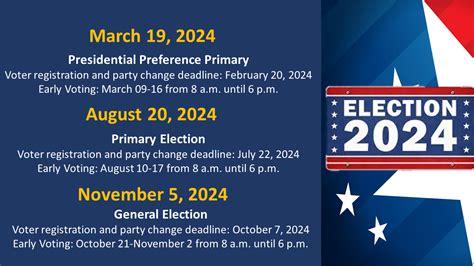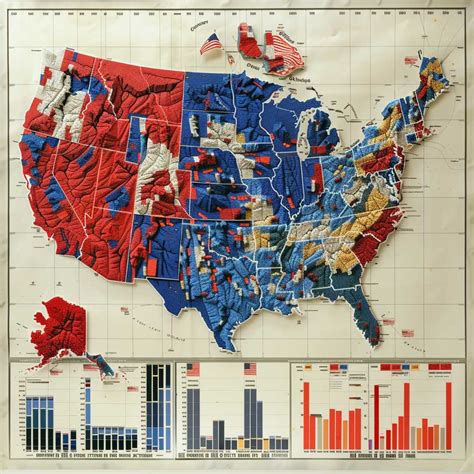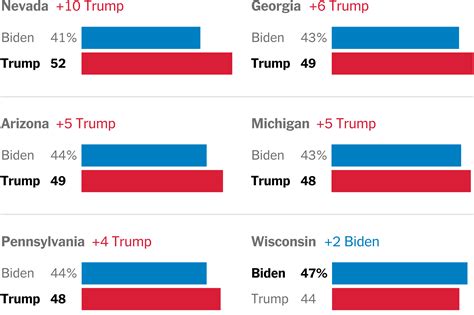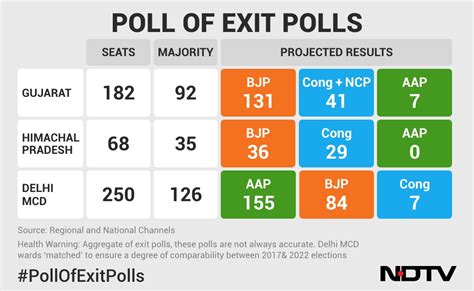Explore key milestones, impactful debates, and essential events leading to the US election, along with voter insights and polling influence. Stay informed!As the countdown to the US Election 2024 begins, understanding the key dates and events can empower citizens to engage meaningfully in the democratic process. This election is poised to shape the nation’s future, making it essential for voters to stay informed about important milestones and pivotal debates. From the initial primaries to the final voting day, each event adds a unique layer to the political landscape. Our comprehensive guide will not only highlight significant dates, such as debates and polling periods, but also delve into the intricacies of the election process, ensuring voters know exactly what to expect. Get ready to navigate the exciting and often complex journey of the US Election 2024, as we bring you the most critical updates and insights to keep you informed and prepared.
Important Milestones In The US Election Timeline
The US Election timeline is critical for understanding the pathway to the presidential election. Here are the essential milestones to watch for as we approach the 2024 election:
- Primary Elections: These will begin in early 2024, with each state holding its own primary to select delegates for the national party conventions.
- National Conventions: In mid-2024, the Democratic and Republican parties will host their national conventions, where delegates officially nominate their candidates for president.
- General Election Campaigning: Following the conventions, the candidates will launch into full campaign mode, participating in events and rallies across the country.
- Voter Registration Deadlines: Each state has its specific deadlines for voter registration, crucial for ensuring participation in the general election.
- Election Day: On November 5, 2024, voters will head to the polls in what is considered the final day of the election process, marking a significant milestone as citizens exercise their right to vote.
- Results and Projections: Following Election Day, major news outlets and polling organizations will begin reporting results, projecting outcomes based on the votes counted.
- Electoral College Vote: In December 2024, the electors from each state will meet to cast their votes for president, signifying another critical step in the election process.
- Inauguration Day: The new president will be officially inaugurated on January 20, 2025, completing the US Election process and marks the beginning of a new administration.
Understanding these key dates is essential for voters, candidates, and stakeholders involved in the US Election to effectively prepare for the upcoming electoral process.
Major Debates And Their Impact On The US Election
Debates play a crucial role in shaping public opinion and influencing the outcome of the US Election. They provide candidates with a platform to articulate their policies, challenge their opponents, and connect with voters on key issues. Historically, major debates have significantly impacted voter perceptions and often sway undecided voters.
One of the most memorable debates in recent history occurred during the 1960 presidential election between John F. Kennedy and Richard Nixon. Kennedy’s poised performance on television helped him gain public support, demonstrating the power of media in political contests. Similarly, in more recent elections, such as the 2008 and 2016 races, debates have been pivotal in either solidifying a candidate’s base or creating momentum for challengers.
Another important aspect of debates is their ability to highlight policy differences. Candidates often use these opportunities to clarify their positions on critical issues such as healthcare, the economy, and foreign policy. For instance, in the 2020 election, discussions about the COVID-19 pandemic shaped voter attitudes and preferences, emphasizing the importance of real-time issues during the debate.
Moreover, debates can also lead to gaffes or memorable moments that become defining features of a candidate’s campaign. These instances can either enhance a candidate’s image or, conversely, become liabilities that detract from their overall appeal. The fallout from such moments can be significant, impacting poll numbers and fundraising efforts in the lead-up to the US Election.
As we approach the 2024 elections, keeping an eye on the debate schedule and candidate performances will be essential for understanding how these events may shape the electoral landscape. Voters should consider not only the candidates’ positions but also their demeanor and ability to engage with opponents, as these factors often influence public perception and voting decisions.
Key Events To Follow Leading Up To The US Election
How Polling Influences The US Election Outcomes
Polling plays a critical role in shaping the dynamics of the US Election, providing insights into voter preferences and predicting potential outcomes. As election day approaches, polls serve as a window into public sentiment, helping candidates and parties strategize their campaigns effectively.
One of the key impacts of polling is its ability to influence voter perceptions. When a candidate is consistently shown to be leading in polls, it can create a bandwagon effect, where undecided voters may lean towards the favored candidate. Conversely, a candidate trailing in polls may face a decline in support due to perceptions of their viability.
Moreover, polling data is often utilized by campaigns to galvanize their base. Candidates may point to favorable poll numbers in their messaging to energize supporters and create an impression of momentum. This is particularly evident during fundraising drives, where positive polling can lead to increased donations as supporters want to back a perceived winner.
However, it’s essential to recognize the limitations of polling. Polls are snapshots of public opinion at a specific time and can fluctuate rapidly based on current events, debates, and emerging issues. Misinterpretation or over-reliance on poll data can lead to disappointment or misguided strategies.
While polls influence candidate strategies and voter behavior, they also serve to inform the media narrative surrounding the US Election. Coverage of polling results can shape voter expectations and overall engagement in the election process.
What Voters Need To Know About The US Election Process
Understanding the US Election process is crucial for every voter. Here are the key components that shape how elections are conducted in the United States:
Voter Registration
Before participating in any election, citizens must register to vote. Registration deadlines vary by state, so it’s essential to check local regulations. Many states offer online registration, while others may require paper forms submitted by mail or in person.
Voting Methods
Voters in the US Election can choose from several methods of casting their ballots:
- In-Person Voting: Most voters cast their ballots on Election Day at designated polling places.
- Early Voting: Many states allow early voting, enabling voters to cast their ballots before Election Day at specified times and locations.
- Absentee and Mail-In Voting: Voters who cannot vote in person may request an absentee ballot or use mail-in voting options, depending on state rules.
Voting Rights
Every voter has rights that are protected by federal and state laws. These include the right to vote free from intimidation, the right to access assistance if needed, and the right to privacy in the voting booth.
Understanding the Ballot
Before heading to the polls or filling out a mail-in ballot, it’s helpful to familiarize yourself with the ballot format. This includes understanding the candidates, propositions, and measures that will be on the ballot. Many states provide sample ballots online.
Election Day
On Election Day, voters should ensure they know their polling location and the hours of operation. It is vital to bring the necessary identification if required by state law. Voters who are in line when the polls close are legally permitted to vote.
Being well-informed about the US Election process empowers voters to participate actively and make their voices heard in the democratic process.
Frequently Asked Questions
What are the main key dates to remember for the US Election 2024?
Key dates include the primaries starting in early 2024, the national conventions in mid-summer, and the general election on November 5, 2024.
When do the presidential primaries begin?
Presidential primaries are set to begin in January 2024, with different states holding their elections on varying dates.
What is the purpose of the national conventions?
The national conventions serve to officially nominate the party’s candidate for president and vice president, and to establish the party platform.
How important are the debates in the election process?
Debates are crucial for candidates to present their views, challenge their opponents, and connect with voters; they often influence public opinion significantly.
What role do swing states play in the election?
Swing states are vital as they can be won by either major party in the general election, making them key battlegrounds that candidates focus on to secure the necessary electoral votes.
How does early voting impact the election outcome?
Early voting allows more people to participate in the electoral process, which can lead to higher turnout and may skew results in favor of candidates with larger ground operations.
What are some potential challenges facing the 2024 election?
Challenges may include issues related to voting access, misinformation campaigns, and the influence of campaign financing on the electoral process.









